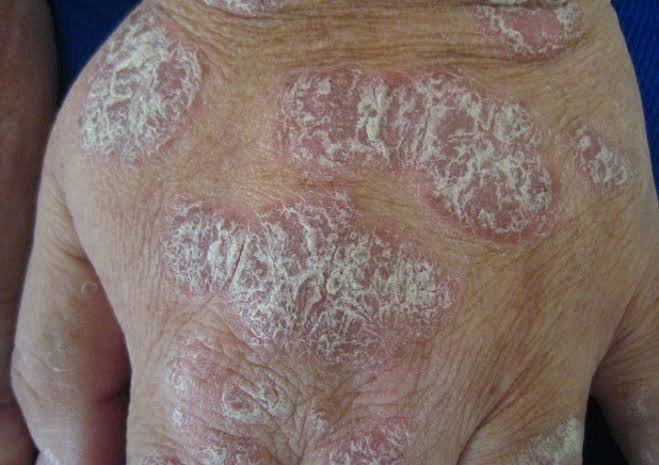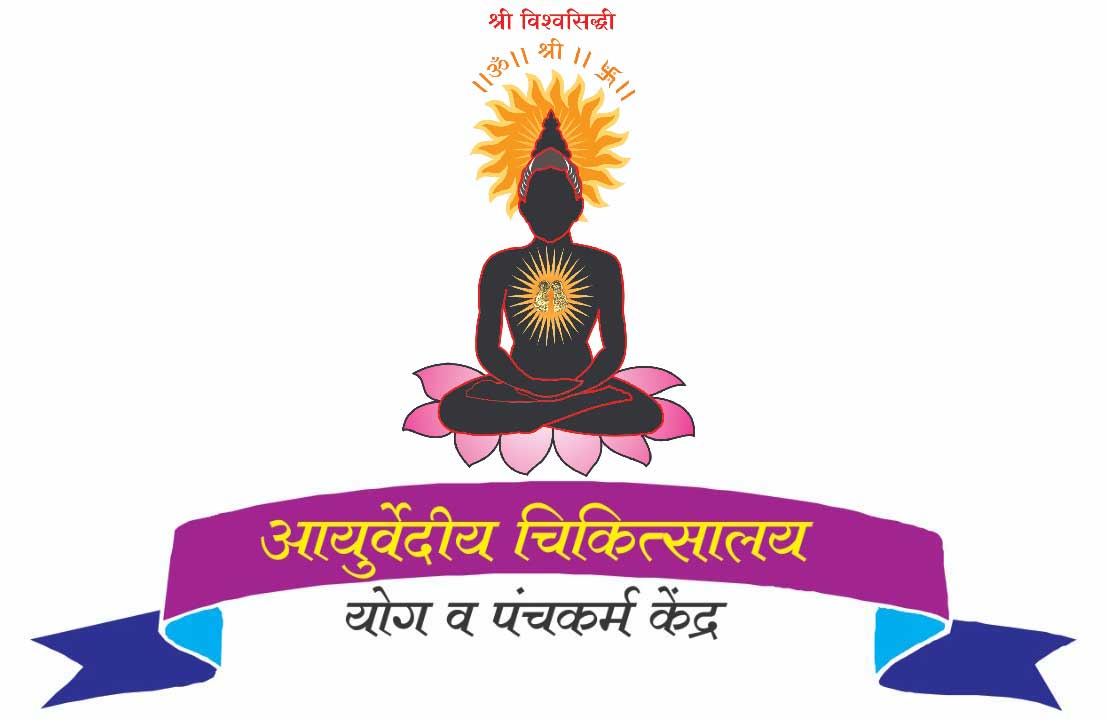Introduction
Psoriasis is a chronic skin condition characterized by red, scaly patches that can cause significant discomfort and impact quality of life. Conventional treatments often provide only temporary relief and can have side effects. Ayurveda, an ancient system of natural healing, offers a holistic approach to treating psoriasis through personalized therapies and lifestyle modifications. At Vishwasiddhi Ayurveda & Panchkarma Centre, located in Ahmednagar and Pune, Maharashtra, Dr. Pramod Palve and his experienced team provide effective Ayurvedic treatments for psoriasis, utilizing Panchakarma to detoxify and rejuvenate the body.

Understanding Psoriasis
Psoriasis is an autoimmune condition that speeds up the life cycle of skin cells, causing them to build up rapidly on the skin’s surface. This buildup forms scales and red patches that can be itchy and sometimes painful. Psoriasis can also be associated with other health conditions, such as arthritis, known as psoriatic arthritis.
Ayurvedic Perspective on Psoriasis
In Ayurveda, psoriasis is known as “Sidhma Kushta” and is considered to result from an imbalance of the doshas (Vata, Pitta, and Kapha) and the accumulation of toxins (Ama) in the body. Factors such as poor diet, stress, and unhealthy lifestyle habits can contribute to this imbalance. Ayurvedic treatment focuses on restoring the balance of doshas, eliminating toxins, and improving overall health.
Panchakarma: The Ayurvedic Detoxification Therapy
Panchakarma is a cornerstone of Ayurvedic treatment, involving five primary procedures designed to cleanse the body of toxins and restore balance. These procedures include Vamana (therapeutic vomiting), Virechana (purgation), Basti (medicated enema), Nasya (nasal administration), and Raktamokshana (bloodletting). At Vishwasiddhi Ayurveda & Panchkarma Centre, these therapies are tailored to individual needs to ensure the most effective treatment for psoriasis.
Treating Psoriasis with Ayurveda & Panchakarma
1. Detoxification
Detoxification is the first step in Ayurvedic treatment for psoriasis. Panchakarma therapies are used to eliminate toxins from the body. This includes:
- Vamana (Therapeutic Vomiting): This procedure helps remove toxins from the respiratory and gastrointestinal tract, promoting overall detoxification.
- Virechana (Purgation): Herbal laxatives are used to cleanse the intestines and remove toxins from the digestive system.
- Basti (Medicated Enema): Herbal decoctions and oils are administered through enemas to cleanse the colon and rectify Vata imbalances.
- Raktamokshana (Bloodletting): This procedure helps remove impure blood, which is particularly beneficial for treating skin disorders like psoriasis.
2. Herbal Medications
After detoxification, Ayurvedic practitioners at Vishwasiddhi Ayurveda & Panchkarma Centre prescribe herbal medications to further cleanse the blood and reduce inflammation. These herbs are selected based on individual dosha imbalances and are aimed at purifying the body from within. Commonly used herbs include:
- Turmeric (Curcuma longa): Known for its anti-inflammatory and antioxidant properties.
- Neem (Azadirachta indica): Helps in purifying the blood and has antimicrobial properties.
- Guggul (Commiphora mukul): Effective in reducing inflammation and promoting detoxification.
3. Dietary Modifications
Diet plays a crucial role in managing psoriasis. Ayurvedic dietary recommendations for psoriasis include:
- Avoiding Spicy and Oily Foods: These can aggravate Pitta dosha and worsen psoriasis symptoms.
- Incorporating Fresh Fruits and Vegetables: These help in detoxifying the body and improving overall health.
- Drinking Plenty of Water: Staying hydrated helps in flushing out toxins from the body.
4. Lifestyle Changes
Ayurveda emphasizes the importance of a balanced lifestyle in managing psoriasis. Patients are encouraged to:
- Practice Stress Management: Techniques such as yoga, meditation, and pranayama (breathing exercises) help reduce stress, which can trigger psoriasis flare-ups.
- Maintain Regular Sleep Patterns: Adequate sleep is essential for overall health and well-being.
- Engage in Regular Exercise: Physical activity helps improve circulation and overall health.
5. Topical Applications
Ayurvedic practitioners at Vishwasiddhi Ayurveda & Panchkarma Centre also recommend herbal oils and pastes for topical application to alleviate the symptoms of psoriasis. These include:
- Aloe Vera Gel: Known for its soothing and moisturizing properties.
- Coconut Oil: Helps in reducing dryness and scaling of the skin.
- Neem Oil: Has antifungal and antibacterial properties, beneficial for treating skin infections.
Why Choose Vishwasiddhi Ayurveda & Panchkarma Centre?
Expertise and Experience
Dr. Pramod Palve, an experienced Ayurveda and Panchakarma practitioner with over 15 years of expertise, leads the team at Vishwasiddhi Ayurveda & Panchkarma Centre. The center is renowned for its personalized treatment plans and holistic approach to healing.
Comprehensive Services
Vishwasiddhi Ayurveda & Panchkarma Centre offers a range of Ayurvedic treatments, including:
- Ayurveda Treatment in Ahmednagar: Comprehensive care for various health conditions using traditional Ayurvedic practices.
- Panchakarma Treatment in Pune and Maharashtra: Detoxification and rejuvenation therapies tailored to individual needs.
- Joint Pain Treatment: Specialized treatments for reducing inflammation and improving joint health.
- Paralysis Treatment Using Ayurveda: Therapies aimed at rehabilitation and recovery.
- Neurological Rehabilitation Using Panchakarma: Effective treatments for improving neurological function.
- Psoriasis Treatment in Ahmednagar and Pune: Holistic approach to managing and treating psoriasis using Ayurveda and Panchakarma.
- Panchakarma Treatment for Senior Citizens: Specialized care for age-related health issues.
- AVN Treatment Using Panchakarma: Targeted therapies for avascular necrosis (AVN).
State-of-the-Art Facilities
The center is equipped with modern amenities to provide a comfortable and effective treatment environment. Patients receive personalized care in a serene and healing atmosphere.
FAQs
1. What is Panchakarma therapy and how does it work?
Panchakarma is a set of five detoxification procedures in Ayurveda designed to cleanse the body of toxins and restore balance. These procedures include Vamana, Virechana, Basti, Nasya, and Raktamokshana, each targeting different areas for a holistic detox.
2. How effective is Ayurveda for treating psoriasis?
Ayurveda is highly effective in managing psoriasis by addressing the root causes, detoxifying the body, and restoring balance. It provides long-term relief without the side effects associated with conventional treatments.
3. Can Ayurveda and Panchakarma be combined with conventional treatments?
Yes, Ayurveda and Panchakarma can be safely combined with conventional treatments. However, it is essential to consult with both your Ayurvedic practitioner and conventional healthcare provider to ensure a coordinated approach.
4. How long does it take to see results with Ayurvedic treatment for psoriasis?
The duration of treatment and time to see results can vary depending on the severity of the condition and individual response to therapy. Some patients may notice improvements within a few weeks, while others may require longer treatment periods for significant results.
For those seeking a holistic and effective approach to managing psoriasis, Vishwasiddhi Ayurveda & Panchkarma Centre in Ahmednagar and Pune offers the perfect solution. Under the expert guidance of Dr. Pramod Palve, patients can experience the transformative benefits of Ayurveda and Panchakarma therapy, achieving optimal health and wellness.
